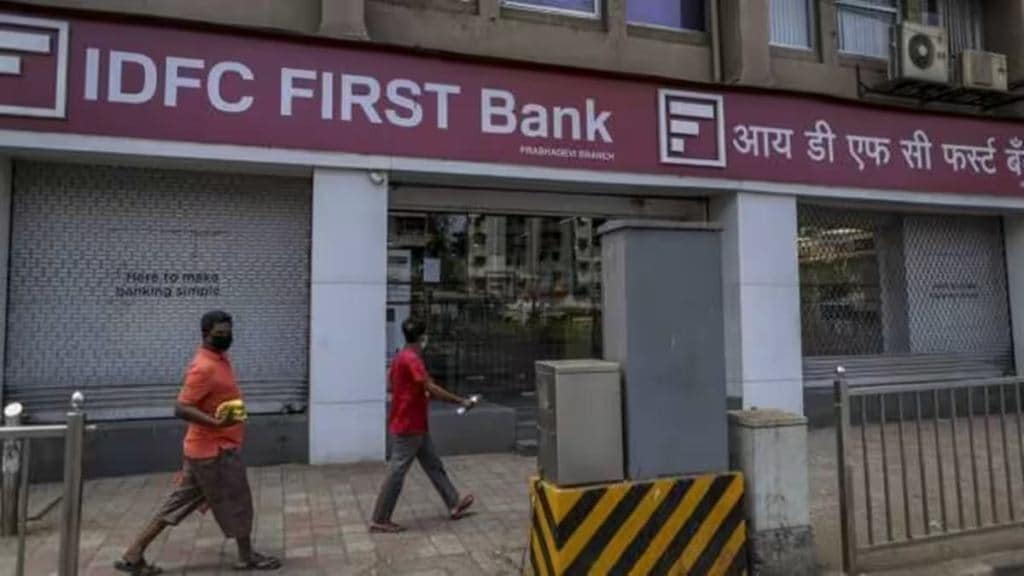IDFC First Bank is on track to be included in the MSCI index, and the merger with IDFC will not dent the prospects, say analysts.
“IDFC First Bank continues to be a top probable contender for MSCI August 2023 Standard Index inclusion and the stock needs another 4% kind of jump till the third week of July to make the cut,” brokerage firm Nuvama Institutional Equities said in a report, adding that the merger will not affect its chances.
In fact, the only deterrent that the brokerage sees is the stock not being able to meet the price cut-off level required for inclusion, which will attract inflows of $170-180 million.
On Monday, the board of directors of IDFC approved the merger with IDFC First Bank. It is expected to be completed in 12-15 months. IDFC held a near 40% stake in the bank as on June 30.
The share exchange ratio for the amalgamation shall be 155 equity shares of face value of Rs 10 each of IDFC First Bank for every 100 equity shares of face value of Rs 10 each of IDFC.
Shares of IDFC First Bank slumped nearly 6% in intra-day trade on Tuesday before closing lower by 4%. Shares of IDFC rose 6% to hit a record high in intra-day trade.
“The announcement of the merger initially caused a decline in IDFC Bank’s shares, as the swap ratio appears to favour IDFC, resulting in a premium based on yesterday’s closing prices,” Santosh Meena, head of research, Swastika Investmart, said. It is important to note that the merger is expected to have long-term benefits for the organisation. These include an increase in book value, improved operational efficiency, synergies and a stronger overall financial position, Meena said.
In an interaction with FE, IDFC First Bank’s MD & CEO V Vaidyanathan said the bank’s book value per share will rise by around 5% as a result of the merger. The bank will also be benefitted from the fact that cash and cash equivalent of Rs 600 crore from IDFC will flow in.
As far as the bank’s core business is concerned, Geojit Financial Services chief investment strategist VK Vijayakumar notes that the cost-income ratio and bad loans have been on a steady downtrend while the deposit growth has been strong.
While the merger is a positive development for the bank, investors must exercise patience as the stock adjusts to the news and market conditions, say analysts.


